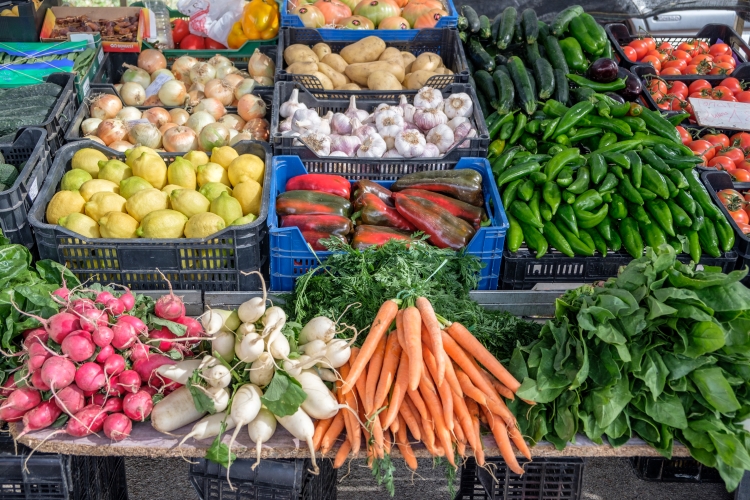
The Dirty Dozen and the Clean Fifteen – the good, bad and the ugly of the fruit and veg world
When I give talks on wellness, the topic of organic food always comes up. Do we really need to eat organic – or not? My advice, based on researching as much as I can in this field and carefully weighing the evidence for and against, indicates to me that we are better off if we do choose organic foods over conventionally grown ones. This is because the biocides that are used to exterminate pests, fungus, bacteria and so on are deadly to life – there’s even a clue in the name: bio = life, cide = killing.
Now, I appreciate that, due to subsidies for conventional farming, and the economics of large-scale industrial farming – organic food can sometimes (but not always) be more expensive than conventional food.
So, what can we do about that?
Well, here’s a really helpful cheat sheet for you called “The Dirty Dozen and the Clean Fifteen”. These are the foods that are the most highly contaminated and really ought to be bought organic, followed by foods that are either less contaminated, or have thick skins – so you can get away with buying then, even though they have been conventionally farmed.
This list tends to change quite often – and it is handy to periodically check back here on the Jayney Goddard.org site for the latest, most up to date list.
These are the Dirty Dozen – they are the top 12 fruits and veggies that I strongly recommend that you purchase organic:
The Dirty Dozen
Apples
Blueberries
Celery
Cucumbers
Grapes
Nectarines
Peaches
Potatoes
Spinach
Strawberries (currently the most highly contaminated crop with recent samples showing that strawberries have been exposed to 25+ harmful chemicals)
Sweet Bell Peppers
Tomatoes
Note: Green beans and kale are moving up on the most sprayed and contaminated list as well.
Here are the good guys – the Clean 15, you can eat conventionally produced fruits and veggies on this list because they are not sprayed as heavily with pesticides – or they have coverings, thick skin or peel that is not penetrated by chemicals.
The Clean 15:
Asparagus
Avocado
Cabbage
Cauliflower
Eggplant
Grapefruit
Honeydew Melon
Kiwi
Mango
Onions
Pineapple
Sweet Corn (watch for GMO)
Sweet Peas
Sweet Potatoes
Watermelon
These are the foods that are most commonly genetically modified, and as such should be avoided:
Alfalfa
Canola (as in canola oil)
Corn (including high fructose corn syrup, corn oil, corn syrup)
Courgette (Zucchini) and yellow squash
Papaya
Soy
Sugar Beets (most sugar in Europe is made from this)
Tags: clean 15, dirty dozen, fruit, fruit and veg, organic, pesticides, vegetables


